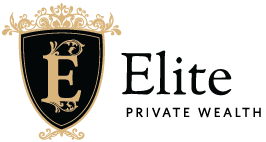FAQs
Your private wealth advisory questions answered below.
Wealth Management & Financial Planning
What is wealth management?
Wealth management is a holistic service combining financial planning, investment management, tax optimization, estate and retirement planning—all aligned with your personal goals and values.
What is financial planning?
Financial planning is the process of aligning your finances with your life goals—such as buying a home, safeguarding your family, or retiring—through budgeting, savings, insurance, and estate strategies.
Why should I work with a Financial Planner?
A dedicated Financial Planner provides objective, tailored advice, helps navigate complex tax and estate issues, and ensures your wealth supports your life goals.
How is wealth management different from financial planning?
Wealth management is broader—financial planning focuses on goal-setting and budgeting, while wealth management includes investments, tax, and estate coordination under one roof.
How much does financial planning cost?
Costs vary; many advisors charge flat fees for comprehensive plans, or hourly rates.
Getting Started & Advisor Selection
When should I seek advice from a Financial Planner?
Major life transitions such as career changes, starting a business, inheritance, or retirement are ideal times to seek holistic financial guidance.
What should I look for in a financial advisor?
Choose someone who acts as a fiduciary, holds recognized credentials (e.g., CFP®, CIM), and understands your personal situation and goals.
How do I know if an advisor is a fiduciary?
Ask directly—they should legally commit to acting in your best interests. Fee-only advisors typically follow a stricter fiduciary standard.
Can I work with a financial advisor even if I’m just starting out?
Absolutely! Many advisors work with early-career clients to establish strong financial habits, build portfolios, and set long-term goals.
Investments & Portfolio Strategy
How do you choose investments?
We analyze your goals, risk tolerance, and timeline to recommend diversified portfolios—like ETFs or mutual funds—focused on net returns.
Why diversify my portfolio?
Diversification spreads risk across different assets, reducing volatility while preserving growth potential.
What is the difference between mutual funds and ETFs?
ETFs often have lower fees and trade like stocks, while mutual funds (especially corporate-class) offer tax-efficiency not available in ETFs.
How often will you rebalance my portfolio?
Typically, we review and rebalance portfolios annually—or sooner if markets shift or your goals change—to maintain target asset allocation.
Taxes & Planning Efficiency
How can I manage taxes more effectively?
Through tax-loss harvesting, using tax-efficient accounts, timing withdrawals, and holding investments wisely, we aim to maximize your after-tax returns.
Can corporate-class mutual funds help?
Yes—these funds convert distributions to capital gains, deferring tax until redemption, which often results in stronger net performance despite higher MERs.
What is tax-loss harvesting?
It involves realizing losses on investments to offset gains, reducing your tax liability and potentially improving overall returns.
How does asset location affect my taxes?
Strategically placing assets in taxable, tax-deferred, or tax-free accounts can improve after-tax returns by optimizing how different investments are taxed.
Retirement & Estate Planning
Will my money last through retirement?
Using modeling that considers inflation, longevity, and your desired lifestyle, we create withdrawal strategies designed to make your money last.
What about passing on wealth?
We provide in depth analysis of wills, trusts, beneficiary designations, and estate plans to ensure smooth wealth transfer and minimize taxes and probate delays.
When should I start retirement planning?
Ideally early—beginning in your 20s or 30s—for compound growth, but anytime you experience life changes is also a good trigger.
What is phased retirement?
It’s a gradual transition—working part-time while drawing from savings—to reduce sequence-of-returns risk and smooth the retirement shift
Ongoing Monitoring & Value
How often should I review my strategy?
At minimum annually, and more frequently during significant life events or market changes, to keep your plan aligned with your evolving needs.
Is financial advice worth it?
For many—especially those nearing retirement, with complex assets, or seeking peace of mind—professional advice often more than pays for itself in financial and emotional value.
How do you measure success?
We track progress against your personal goals (e.g., retiring at age 65 with X lifestyle) and benchmark against market-neutral targets, rather than chasing arbitrary returns.
What happens if life changes?
Your plan is intended to be flexible. If you marry, have children, change jobs, or experience health events, we adjust your strategy together.
How are We different?
maximize your income and unlock piece of mind in easy steps

Fee Based Asset Management
Benefit from increased transparency and lower investment fees by negotiating the fees you pay for advice

Portfolio Analysis
After careful analysis of your goals we build portfolio aimed at reducing risk and improving performance

Working with a CFP®
The Certified Financial Planner® (CFP®) designation has been recognized as the standard for financial planning.

